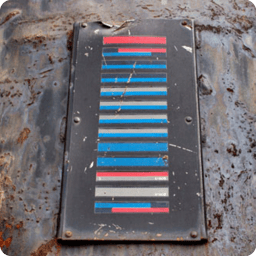The Evolution of Healthcare Asset Management
- 6 mins

The Beginning
Asset management can be traced back to the beginning of civilization. "...from cuneiform and hieroglyphics on clay, to the Roman alphabet on papyrus, and Chinese writing on paper. There is even new evidence that quipu, the Incan knotted ropes, were used for record keeping of belongings."1 The earliest form of recorded asset registration comes from Mesopotamian times and their need to track property. The invention of paper in China's Han Dynasty (105 AD) revolutionized inventory logging, paving the way for comprehensive records like the Domesday Book, detailing assets such as land and livestock.
The Industrial Revolution marked a major advancement in asset management, necessitating formal record-keeping of factory machinery. The Great Depression then prompted the initiation of preventative maintenance to extend equipment lifespan. By the 1980s, the advent of PCs revolutionized asset management for larger companies, while smaller ones utilized spreadsheets.
Advancements Beginning to Show
 In 1967, the first official barcode system, Kartrak, was implemented in the railroad industry. The barcodes were used to identify rail cars as they moved past scanners, but they didn't last as long as people anticipated. It wasn't as accurate as it needed to be, causing it to stop being used only a few years after its release in the 70s. But in 1974, "the very first Universal Product Code barcode was scanned at a grocery store in Troy, Ohio, on June 26, 1974."2
In 1967, the first official barcode system, Kartrak, was implemented in the railroad industry. The barcodes were used to identify rail cars as they moved past scanners, but they didn't last as long as people anticipated. It wasn't as accurate as it needed to be, causing it to stop being used only a few years after its release in the 70s. But in 1974, "the very first Universal Product Code barcode was scanned at a grocery store in Troy, Ohio, on June 26, 1974."2
 Over time, the need to include more information on barcodes became clear. Denso Wave, a Japanese automotive company, would apply 10 barcodes, sometimes more, to be able to properly track all the information they needed. In 1994, a Denso Wave team created the Quick Response (QR) code after playing a game of Go and realizing that the grid could hold significantly more information and could be read from multiple directions.3 QR code usage saw a significant increase in use after the 2020 pandemic.
Over time, the need to include more information on barcodes became clear. Denso Wave, a Japanese automotive company, would apply 10 barcodes, sometimes more, to be able to properly track all the information they needed. In 1994, a Denso Wave team created the Quick Response (QR) code after playing a game of Go and realizing that the grid could hold significantly more information and could be read from multiple directions.3 QR code usage saw a significant increase in use after the 2020 pandemic.
Modern Asset Management
Modern technological advancements have made asset management software a crucial tool in healthcare, streamlining the management of equipment from basic tools to high-tech machinery, ensuring timely and effective patient care, and offering significant operational benefits.
Asset management software significantly enhances operational efficiency by streamlining asset tracking and offering real-time insights into asset utilization, which optimizes resource allocation, reduces costs, and boosts performance. This technology enables data-driven decision-making, allowing hospitals to analyze trends and optimize assets for strategic growth and operational excellence. It also supports compliance with industry regulations through centralized information and audit trails, thereby mitigating risks and enhancing organizational reputation. Additionally, automating data collection with asset management software reduces manual entry errors, ensuring more accurate and reliable asset records and inventory management, ultimately leading to improved operational reliability and efficiency.
By embracing asset management software, healthcare facilities are not only enhancing their operational efficiency but are also setting new standards in patient care, compliance, and financial management.
Pycube Delivers
As the nursing and staffing shortage continues, leveraging an affordable asset management solution is important, now more than ever. With Pycube, we give you the ability to locate, control, and protect your assets. Our handheld scanners and RFID tags work on a variety of materials and come in an abundance of sizes, allowing you to tag something as small as a cable or as big as a hospital bed.
 Pycube's Asset Location solution leverages mobile passive RFID technology for efficient, precise asset tracking, without the need for direct line-of-sight. Our Asset Protection solution utilizes this technology with advanced analytics to monitor and alert unauthorized asset movements, enhancing security. Our Preventative Maintenance solution automates maintenance scheduling and offers real-time data via a live dashboard, streamlining the process of managing asset upkeep and ensuring operational efficiency. Together, these solutions provide a comprehensive asset management system that optimizes security and maintenance workflows.
Pycube's Asset Location solution leverages mobile passive RFID technology for efficient, precise asset tracking, without the need for direct line-of-sight. Our Asset Protection solution utilizes this technology with advanced analytics to monitor and alert unauthorized asset movements, enhancing security. Our Preventative Maintenance solution automates maintenance scheduling and offers real-time data via a live dashboard, streamlining the process of managing asset upkeep and ensuring operational efficiency. Together, these solutions provide a comprehensive asset management system that optimizes security and maintenance workflows.
Stop searching for the needle in the haystack – eliminate the haystack, with Pycube. Contact us to learn more.
Resources:
- 1Lazar, Peter. "The History of Asset Management Systems." LinkedIn, 5 Feb. 2024, www.linkedin.com/pulse/history-asset-management-systems-peter-lazar-zxzue/.
- "Property and Ownership ." World Eras. . Encyclopedia.com. 18 Mar. 2024 <https://www.encyclopedia.com>.
- Cartwright, Mark. "Domesday Book." World History Encyclopedia, 19 Nov. 2018, www.worldhistory.org/Domesday_Book/.
- Smith, Ernie. "Right Track, Wrong Station." Teduim., 4 May 2022, https://tedium.co/2022/05/04/kartrak-railroad-barcode-history/.
- 2Frith, Jordan. "The Surprising History of the Barcode." CNN Style, 18 Jan. 2024, www.cnn.com/2024/01/18/style/barcode-design-history-bullseye-partner/index.html.
- 3"A Brief History of QR Codes." Microsoft, 28 Apr. 2023, www.microsoft.com/en-us/microsoft-365-life-hacks/privacy-and-safety/brief-history-qr-codes.
Pycube, Inc.
Pycube offers digital solutions that provide unparalleled visibility into business operations. By digitizing and analyzing existing processes, Pycube delivers actionable insights to inform superior decision-making and enable continuous process improvements, automation, and monitoring that optimizes operational efficiencies. Our team is constantly evolving with you to ensure that we can create customized solutions that offer minimal disruption to your existing processes. Our innovative platform, software, and services not only help to increase the quality of care provided to patients but also reduce some of the daily challenges that hospital staff have meeting patient needs. In simple terms, Pycube delivers cost-effective solutions that digitize assets and spceimens, streamline workflows, and automate processes.